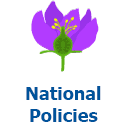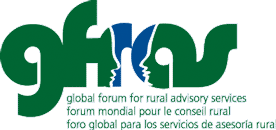 Every country has developed, formulated, and decreed national policies related to rural advisory services. Find some examples here. If you are looking for a national policy from a specific country, please use the search function, selecting the category “National policies” and the tag for the country.
Every country has developed, formulated, and decreed national policies related to rural advisory services. Find some examples here. If you are looking for a national policy from a specific country, please use the search function, selecting the category “National policies” and the tag for the country.
Sustainable Nutrition Manual Part 3: Healthy Designs
This part of the manual brings parts 1 and 2 together with your own knowledge and experience. It will guide you to create a personalised design for achieving sustainable nutrition and a better future. You’ll draw maps and sketches as you make your plans to make the most of all the resources that you have now, as well as building up resources for the future.
Sustainable Nutrition Manual Part 2: Healthy Environments
This part of the manual is about Natural Systems and Sustainability. You will learn about the Nature Cycle and the Water Cycle and an understanding about Soil Fertility and the benefits of Diversity in Nature will develop. You will be introduced to Permaculture designs and sustainable living practices. You will find out about renewable and non-renewable resources and begin to understand the wider issues of sustainability. This book can be used in your homes, offices, schools, communities, farms and gardens. You can discuss the ideas in it with others so that eventually your whole nation designs and lives sustainably.
Sustainable Nutrition Manual Part 1: Healthy Humans
This manual is for people who eat, grow or buy food and who want to improve their own lives, their community and the environment that they live in. It has been written for, and by, people living in Malawi, but the ideas in it can be applied anywhere in the world. It is for all people, everywhere, but most of all it is for you. Many people in Malawi have used this manual with great results and, if you use these ideas, you will also be able to:
- Improve your diet and health
- Save money that was spent on food, medicines and chemicals
- Double or triple yields and harvests (or even more!)
- Reduce the amount of watering in gardens and orchards
- Reduce the amount of work done on your land and in your home
- Have healthier plants and animals
- Reduce infertile and unproductive areas of land
- Use free resources to improve soil and water in your area
Nutrition Handbook for Farmer Field Schools
This handbook is written so that participating farmers and their families can equitably address food production and nutrition issues for good health. FFS participants are encouraged to share what they learn with farmers in their community, schools and other community groups so their whole community benefits. Persons working in extension support services such as Agricultural Extension Development Officers (AEDOs), Health Surveillance Assistants (HSAs), and other service areas (Community Development, Forestry, Environmental Health, Teacher Development Centres, schools, etc.) can use the handbook to support farming families to diversify food production and utilization for better nutrition.
Malawi: Landscape Analysis
This landscape analysis is an overview of key gender, nutrition and agricultural extension issues in Malawi. It contributes to the knowledge base of Feed the Future countries for both the INGENAES team and country extension and development practitioners. It begins with an overview of Malawian geography, culture, and poverty status. It then provides a description of the Malawian agricultural sector, the national agriculture strategy, and women’s involvement in agriculture; food security and nutrition issues in the country; and the national nutrition strategy. In addition, the analysis provides details on the Feed the Future approach in Malawi and how USAID’s country strategy supports Feed the Future activities. The final section of the report includes descriptions of various projects that are relevant to the INGENAES program.

